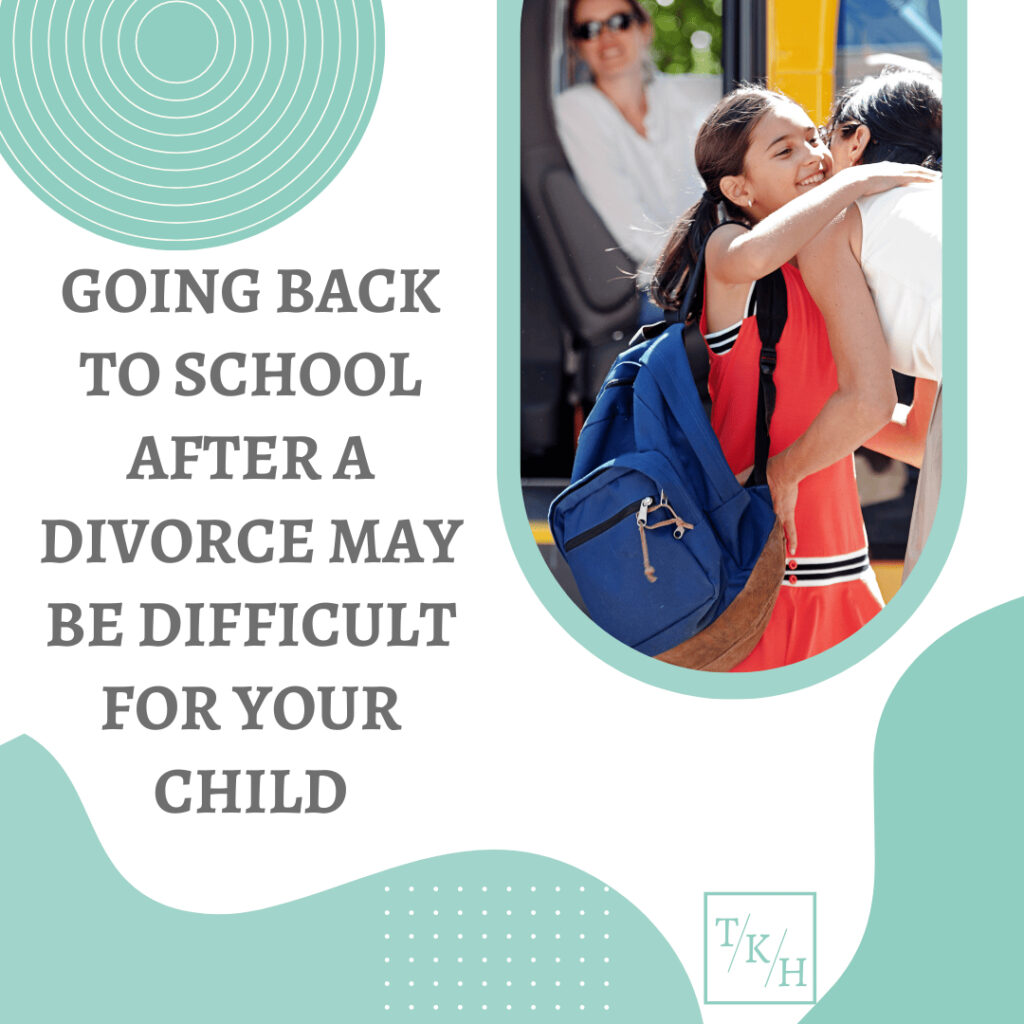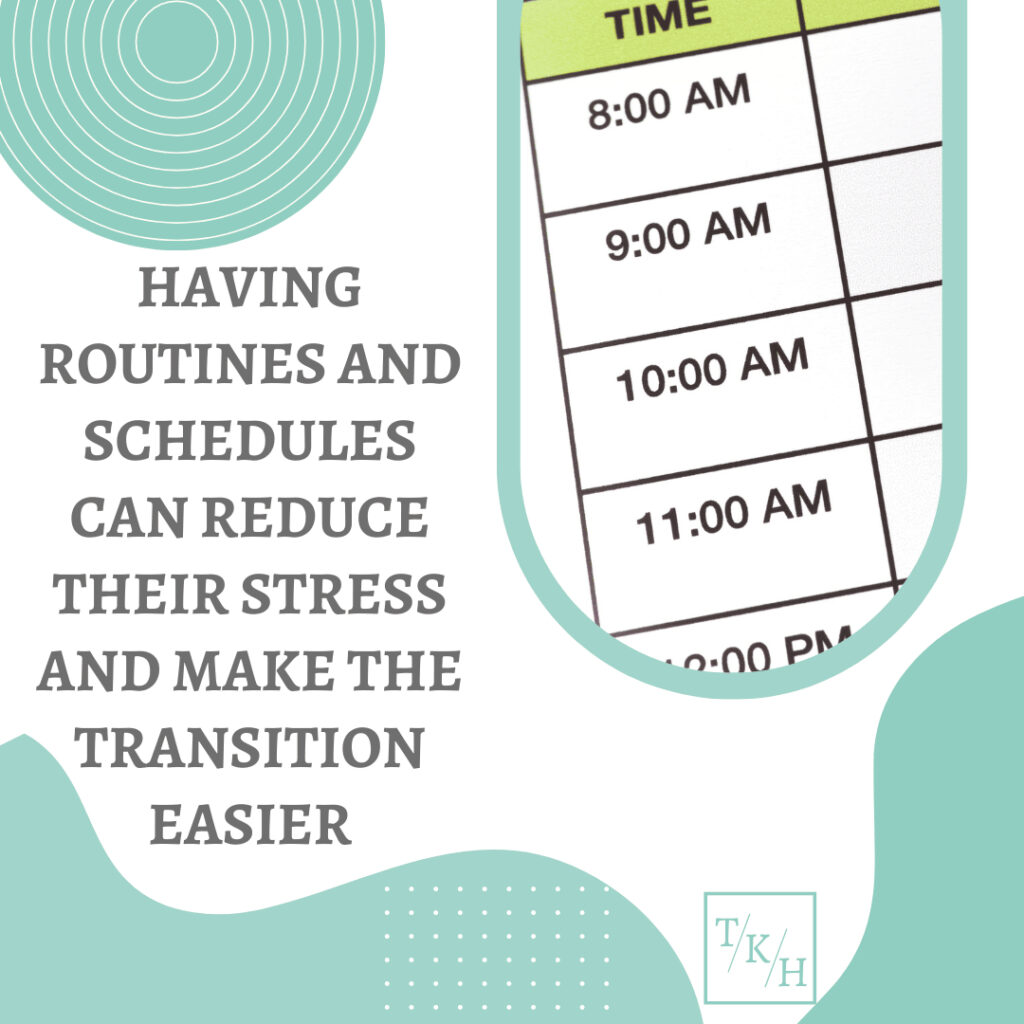As a top collaborative divorce lawyer in Illinois, I have seen the impact divorce and separation can have on children. It can be especially challenging when school starts. They’ve already experienced a big family shift and now they have a new class, new teacher, and new friends. All of this can make them particularly anxious. It is important to discuss the divorce with your child and how to address any issues that may arise at school.
How might divorce affect my child?
Divorce will affect all kids differently. Some may rebound quickly while others may struggle to cope. It is common for kids to feel stressed and worry about the relationships within their family. They may blame themselves or get angry at one or both parents because the family is no longer together. If the marriage has been particularly contentious, they may experience a feeling of relief.
Regardless of how they react, their feelings may manifest themselves as outward expressions at school. They may be more impulsive, have behavior problems, and even perform poorly academically. In my experience as a collaborative divorce lawyer in Illinois, it is important to prepare your children before they go back to school, so they can cope with their feelings and be more successful.
How can you make the transition back to school easier?
- Make a plan with your child – Parents give their kids strategies for navigating all kinds of difficult situations. Providing them with strategies for how to talk about the divorce and your changing family will help them when the issue comes up at school. Class mates may ask questions, so if they already know how to answer them or how to decline answering them, they will feel more confident.
- Inform teachers – Whether your child is young or in high school, their teachers should be informed about a recent divorce. They need to be ready in case the child shows signs of stress, is distracted, or needs emotional support. If the teacher is aware of the different home situation, they will be able to respond more appropriately to the child’s needs. Also, they will be able to work closely with you to problem solve if your child is struggling.
- Give your child space to process their emotions – Many kids will be able to have open and honest conversations with their parents about their feelings related to the divorce. However, it is important to set aside time free of distractions and dedicated to those conversations. If your child continues to struggle or isn’t able to open up at home, you should seek professional help. The Center For Divorce Education notes that plummeting grades, losing friends or drastically changing peer groups, radical changes in behavior, or physical symptoms (such as sleep disorders, eating disorders, stomach aches) can be indicators that your child needs a professional to help them cope. Therapy can help them discuss their feelings and reduce their distress.
How can consistency help your child?
Having routines and consistency in a child’s life alleviates some of the fear they may be experiencing related to the divorce. Having a parenting schedule and adhering to that schedule is important so the child knows what to expect. Allowing the child to continue with routines they had prior to the divorce is also important. If they participated in extracurriculars at school or were in recreational sports, being involved may make going back to school less daunting. If they had a part time job or did volunteer work regularly, again those routines can provide a sense of comfort to them knowing that not everything has changed.
As a collaborative divorce lawyer in Illinois, I will support your whole family, so that everyone has the smoothest transition possible
If you are seeking a divorce and want to mitigate the impact it will have on your entire family, a collaborative approach may be right for you. It will help you and your family focus on ensuring an easy transition to your new normal, which may make it easier for your child to cope. Contact our collaborative divorce lawyer in Illinois today.



